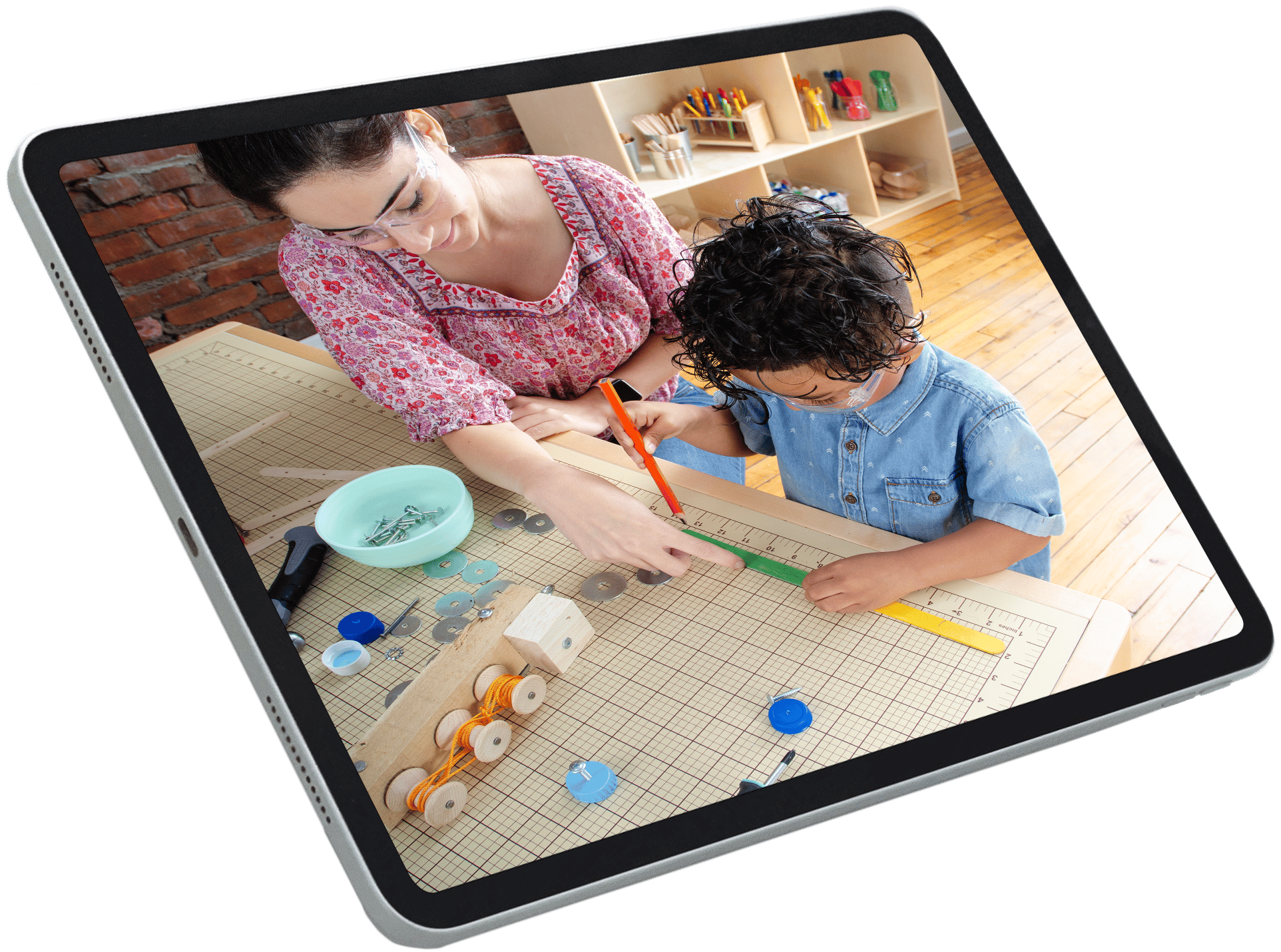
Parent-teacher conferences can be stress inducing for everyone involved. As a teacher, you've most likely experienced the anxiety that comes from worrying over how to breach certain topics with parents and how to say things the right way. Your relationship with a child's family is often impacted by how well the parent-teacher conference is conducted and how productive the conference is in helping the child succeed. In (Almost) Everything You Need to Know About Early Childhood Education, Judy Fujawa lists ten tips for what educators should do during parent-teacher conferences. The following list of ideas for conducting successful parent-teacher conferences is based off of Fujawa's tips and additional resources from the National Education Association (NEA) and the Harvard Family Research Project:
- Do your homework. Preparation is vital to conducting a successful parent-teacher conference. Taking time to make notes of what you want to discuss in the conference and preparing any handouts/tips for parents will help you feel confident and organized for the meeting.
- Create a welcoming conference space. Displaying student work and providing light snacks and beverages can help families feel more comfortable and relaxed during the conference. Setting up a private space for the conference and arranging chairs in a circle are also good ways to create a welcoming conference space.
- Always start the conference with positive comments. Parents are often anxious about what teachers will say about their child, so start the conference with positive comments to show parents that you recognize their child's strengths.
- Show a portfolio of the child's work (drawings, stories, essays, homework assignments) and share your observations of the child's actions, reactions, and interactions. Use specific examples when discussing the child's growth and progress. Talk with parents about their child's ability level in social situations and in different academic subjects. Make sure parents understand the different learning goals in place for their child.
- Communicate any concerns you have about the child's behavior and performance in school. Once you've shared your observations, identify and discuss the areas of concern that need to be addressed. Make sure this discussion is about the child and that you are not defending yourself or classroom/school policies.
- Ask parents for input on their child's strengths and needs, behavior, and learning styles. Actively listening to parents can help you learn more about the child and his or her home life and can help you better understand the hopes and goals parents have for their child. Asking parents for their opinion and input can also build respect and strengthen your relationship with the child's family.
- Propose a cooperative team effort. When discussing strategies to address areas of concern, have a team mindset and emphasize statements that promote collaboration. "Let's work together to..." and "How can we work together?" are two examples of statements you can use to get parents on board with helping meet their child's needs.
- Allow parents ample time to talk but be considerate of other parents by staying on schedule. Make sure you give parents ample time to voice their concerns and give their input when you schedule the conference. If a conference starts to go over the allotted time, remind parents that there are other families waiting and that they can contact you or schedule another conference for a more in-depth discussion of the issue.
- Provide additional suggestions, recommendations, and referrals at the end of the conference. It's important that you make a plan for how both you and the family will support the child. Be specific about what you and the family will do, how long you'll do them, and how you will communicate with one another. If a student struggles to turn in homework, an example solution would be for parents to check over the student's work and sign weekly reports from you that detail whether or not the child missed any homework assignments.
- Schedule a follow-up conference if necessary and end the meeting as positive as you started. Take time to schedule a follow-up conference if parents still have concerns or if a strategy to help children address areas of concern wasn't finalized. Remember to end the meeting on a positive note. Say that you look forward to working with parents or reiterate a positive comment you made about their child earlier in the meeting.
Deciding whether you want to give parents the option of including the child in the conference is another idea to consider for conducting successful parent-teacher conferences. Parents and teachers are often divided on this issue. In her article for NEA, Judy Bonfilio, a retired fifth-grade teacher, argues that it's a good idea to include the child since he or she can then be a part of figuring out a solution or be there to hear your praise. Regardless of whether the child is included, it's important that you keep in contact with families after the conference. Successful collaborative strategies require routine updates about a child's progress and challenges from all parties involved.
Article Sources
Bonfilio, Judy. "Parent/Teacher Conference Preparation." National Education Association. 2008.
Fujawa, Judy. (Almost) Everything You Need to Know About Early Childhood Education. Beltsville, MD: Gryphon House, 1998.
"Parent-Teacher Conference Tip Sheets for Principals, Teachers, and Parents." Harvard Family Research Project. 2010.
